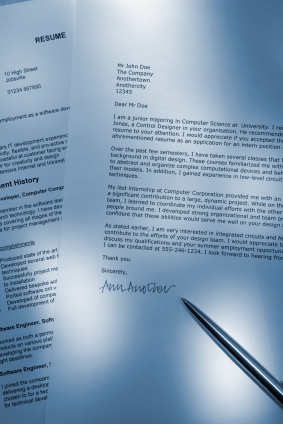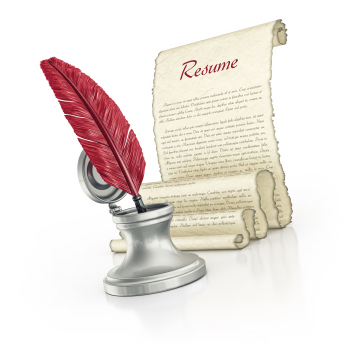**I am a member of the Career Collective, a group of resume writers and career coaches. Each month, all members discuss a certain topic. This month, we are talking about what job seekers can do now at the half year mark. Please follow our tweets on Twitter #careercollective. You can also view the other member’s interesting posts at the end of the article.

With summer in full swing and the first half of the year gone already, it’s time to do a little inventory of your job search.
What has worked for you and what hasn’t?
First and foremost take a good, long, honest look at your resume.
What message is it conveying? Is it portraying what you excel in? Is it telling the reader what you can do for them or is it just a laundry list of what you’ve done. Is it focused on the job advertised? Sometimes I get a resume and I think, “Soooo, what does this person want to do??” Be specific and clear. Let the reader know why you are the best choice for the job. Remember, you are your product. You have to sell yourself.
Beef up your networking (especially if you don’t have one).
Have you told everyone of your decision to job search? Friends, family and colleagues? Have you updated your LinkedIn profile? What about other social networking profiles? Time to start creating some. Have you gone to any networking functions? Met any new people? If you haven’t, it’s time to put yourself out there and ‘make some new friends’ as your mother would say. Putting your resume on Monster.com won’t help you land a job.
Consider staying in your existing position – making the most of it.
So, perhaps if you’ve been job searching while still employed, and not having much luck, your existing job is looking better and better. Analyze your current situation. What is it you don’t like about your job? More money? A better boss? Bigger challenges? What is it you want to change? Can you talk with your employer and see if you can work something out? Sometimes staying put has its advantages.
With only a month and a half until September, sit down and write yourself a new strategy for the second half of the year. Having a plan will help you feel more in control of your career and more positive about what is to come.
+++
4 Summer Strategies to Step Up Your Job Search, @DebraWheatman, #careercollective
Putting Your Job Search Up On The Rack For Inspection, @dawnrasmussen, #careercollective
Mid-Year Job Search Checkup: Are you wasting your time? @GayleHoward, #careercollective
What is your unique value proposition? @keppie_careers, #careercollective
It is Time for Your Check-up Ms/Mr Jobseeker, @careersherpa, #careercollective
Mid-Year Career Checkup: Are You “On Your Game?” @KatCareerGal, #careercollective
How to Perform a Mid-Year Job Search Checkup, @heatherhuhman, #careercollective
Reposition your job search for success, @LaurieBerenson, #careercollective
Mid-Year Job Search Checkup: What’s working and What’s not? @erinkennedycprw, #careercollective
Mid-Year Job Search Check-Up: Getting Un-Stuck, @JobHuntOrg, #careercollective
Mid-Year Check Up: The Full 360, @WalterAkana, #careercollective
5 Tips for Fighting Summer Job Search Blues, @KCCareerCoach, #CareerCollective
Are you positive about your job search? @DawnBugni, #CareerCollective
Where Are The Jobs? @MartinBuckland, @EliteResumes, #CareerCollective
Mid-Year Job-Search Checkup: Get Your Juices Flowing, @ValueIntoWords, #CareerCollective
When Was Your Last Career & Job Search Check Up? @expatcoachmegan, #CareerCollective
Is Summer A Job Search Momentum Killer? @TimsStrategy, #careercollective
The Necessity of Professional Cover Letters
BlogCover LettersJob SearchProfessional ResumesResume KeywordsResume WritingResumes
Many job seekers stress over cover letters more than they do their own resumes. It may surprise some, besides cover letters are typically a one-page preface to your intricately prepared resume. But, the truth is, that your resume may look dull without a good cover letter to introduce it. Cover letters introduce you to HR managers and set the tone for how your resume will be received. You can have a perfect resume, but if the cover letter is not well done, then your resume will not get the type of attention it deserves. Everyone looking for a job should have a professional cover letter and resume in order to find the career that’s right for them.
When you first enter the job market (most of us at around 21 years of age) don’t know how important cover letters are for you, much less how to write one that sells you. Many people are not aware of the benefits that a simple, well-crafted cover letter to a prospective employer can have. They introduce you to your prospective employer, but also they give a glimpse of your personality.
Just a few weeks into your job search, you will realize that a well-crafted cover letter is not an option, it’s a necessity. Through the support of a professional resume and cover letter writer, you can finally have the cover letter that sells your individual personality and traits. If you have a cover letter, it could always use another eye on it in order to see where you can make changes or additions. You want to sell yourself in your cover letter, your resume speaks to what type of experience and qualifications you have, that’s why it’s important to have a cover letter that sets you apart.
But, just having one is usually not enough. After a few weeks or months of unanswered applications and fruitless job searches, you begin to come to a final conclusion.
When you, or your cover letter writer, writes your first letter, the primary focus is on presentation and the format. How long should the cover letter be? Where to assign the date? What type of font is right for my cover letter? But, throughout you want to focus on one thing – quality content. If your cover letter is full of buzz words or just inane babble, then it’s not worth the paper it’s printed on.
It’s always important to remember, before you start writing, that content is king. It’s fairly easy to lose sight of what’s important and lose focus instead of paying attention to what’s important. That doesn’t mean that there are not guidelines to follow, but your cover letter writer can help you deal with the details. You do not want to have spelling or grammatical errors in your cover letter. That’s an instant turn off to any prospective employer. Remember that the main point of your cover letter is to get noticed and sell yourself.
Constructing a Resume That Sells You
BlogCareer & WorkplaceExecutive ResumesJob SearchProfessional ResumesResume KeywordsResume WritingResumesSuccess Strategies
Some people think that resumes are nothing more than a list of your accomplishments, the jobs you’ve had, and the number of places you’ve worked. But, it’s not that easy to construct a resume that markets you to your prospective employer. A resume should be designed to sell you and your potential to an employer. That means that you have to make decisions about how to present your traits.
A resume has to be like an advertisement, it needs to catch the reader’s eye and meet their particular needs. If you’re applying for an accounting job, then you wouldn’t need to showcase your creative writing talents on your resume. You would need to show that you have the skills required to perform the duties of the position at a high level. That doesn’t mean putting everything you’ve ever done on your resume, it just means you have to understand your market and how to reach them. Make sure you put your best foot forward.
Look over your work history and pick the selling points that best highlight your value. Depending on the position, you should highlight specific skills that you have. Deciding what makes the most unique selling points can be the hardest part of writing a resume. Here are five basic steps to help design a resume that markets your skills to employers:
1. Choose the most relevant information first. Focus on the skills and experience that are most important to the job you’re applying for. You may have a whole range of skills, but focus on the ones that are most important for your particular employer. Even if you’re qualified based on past experience, don’t put all of your eggs in one basket. Instead, make sure that you focus on the skills that are going to set you apart from other potential employees.
2. Showcase the cutting edge, without too much emphasis on the outdated. More experienced workers should focus heavily on this. Any professional should continue to update their resume with new talents and show that they can adapt to new challenges. You may know the beginnings of C+ language, but it will help if you know Flash or Linux.
3. Tangible examples are best. Be specific as possible and use tangible evidence of improvements if you can. Just saying that you have an excellent track record of improving sales doesn’t show much, you need to show actual figures.
4. Use multiple resumes to market yourself in a different manner. If you’re applying for several different types of positions or in different industries, you need to have a resume suited to that profession. So create several different resumes that highlight your skills for that particular position.
5. Get a second opinion. This is perhaps the most important thing you can do. It can be hard to be objective about your career. Give your resume to a friend or a family member, or if you have someone in your industry – even better.
Social Media: Choosing, Using, and Confusing
Career CollectiveExecutive ResumesJob SearchNetworkingResume WritingResumesSocial Marketing/Online Branding**I am a member of the Career Collective, a group of resume writers and career coaches. Each month, all members discuss a certain topic. This month, we are talking about Social Media and our careers. Please follow our tweets on Twitter #careercollective. You can also view the other member’s interesting posts at the end of the article.
+++++

Today it seems that everyone from your 10-year-old nephew to your Great Grandmother Mildred has at least a Facebook account filled to the brim with information that you may or may not want them, or other people from divulging – everyone, which includes the same hiring manager you sent your last resume to. Now it’s just much easier for prospective employers to Google your name and find out information about you, your family and your habits. So, what’s the best site and the best methods to keep your personal information private?
With the vast resources of personal data so readily available through social networking sites, it is very tempting for recruiters, HR managers and even yourself, to use these methods to screen prospective employees or to just find out information about an old friend. Microsoft recently released a commissioned study that shows 79% of people will look at an applicants’ online profile. Reviewing a candidates social networking site can help companies know more about how those candidates handle themselves, both personally and professionally. It can also provide information that is illegal to ask during interviews.
It’s true that in today’s world you have to be online in order to get noticed, but what sites are right for keeping your personal information private, while still giving you a measure of freedom online? The most well known sites such as Facebook, LinkedIn, Twitter and Myspace all have their ups and downs. Myspace has virtually vanished as a peer-to-peer social media information site in favor of it’s traditional focus as being a music house for artist. Facebook has it’s many detractors thanks to gaping security holes and the ability to gleam information quickly and easily, even after that information has been deleted. Twitter doesn’t really carry the same weight as the other sites, it’s good for quick burst of information but you cannot really customize it in order to share professional information. LinkedIn is the site that many professionals think of when they are looking for another job. People post links to jobs, information about their companies and things they are looking for. If you stay diligent and become friends with people in your industry, there is no way that LinkedIn would not benefit you.
It also presents an ethical conundrum. What if an HR manager stumbles upon your Facebook page with pictures from a wild party or of your growing baby belly? Would they be more or less inclined to hire you based on what they determine online? According to Microsoft’s study, 84% believe that it is OK to use social media to gather information about a candidate.
Do you know what that means? It means you have to stay up on what you have posted online and watch anything that could prevent you from finding that job. Make sure that you pick the right social media site and use it properly. In the right hands social media can be a very powerful thing, but it can also prevent you from gaining what you want.
++++
Read on for more great Career Collective articles:
Make Your Career More Social: Show Up and Engage, @WalterAkana, #careercollective
You 2.0: The Brave New World of Social Media and Online Job Searches, @dawnrasmussen #careercollective
How to Get a New Job Using Social Media, @DebraWheatman #careercollective
Social Media: Choosing, Using, and Confusing, @ErinKennedyCPRW #careercollective
How to Use Social Media in Your Job Search, @heatherhuhman #careercollective
Updating: A Social Media Strategy For Job Search, @TimsStrategy #careercollective
Your Career Needs Social Media – Get Started, @EliteResumes @MartinBuckland #careercollective
We Get By With a Little Recs from Our Friends, @chandlee #careercollective
Expat Careers & Social Media: Social Media is Potentially 6 Times more Influential than a CV or Resume, @expatcoachmegan #careercollective
Social-Media Tools and Resources to Maximize Your Personalized Job Search, @KatCareerGal #careercollective
Job Search and Social Media: A Collective Approach, @careersherpa #careercollective
How Having Your Own Website Helps You, @keppie_careers #careercollective
Social Media: So what’s the point?, @DawnBugni #CareerCollective
Tools that change your world, @WorkWithIllness #CareerCollective
HOW TO: Meet People IRL via LinkedIn, @AvidCareerist #CareerCollective
Effective Web 2.0 Job Search: Top 5 Secrets, @resumeservice #CareerCollective
Jumping Into the Social Media Sea @ValueIntoWords #CareerCollective
Sink or Swim in Social Media, @KCCareerCoach #CareerCollective
Social Media Primer for Job Seekers, @LaurieBerenson #CareerCollective
5 Reasons Your Job Search is Still Going
BlogCareer & WorkplaceExecutive ResumesInterviewingJob SearchNetworkingProfessional ResumesResume WritingResumes
In order to advance your career and get your job search back on track, there are a few things that you must do correctly. As a job seeker, finding a job should be your full-time job. Many people work tirelessly to find a job, but they keep coming up short, so today we’re going to have a look at the 5 reasons that your job search is still going and why you’re not getting the response that you feel you should. If you find yourself doing any of the following, then today is a great day to take action.
1. You do not make your job search personal
What this means is that you’re still sending out generic resumes with no target. Instead, get personal. Find the names of HR Managers, company directors or anyone involved in the hiring at the company. Then you send them a personalized note with your custom made resume to their company explaining your desired position and how you could help the company.
2. You are looking in the same place as everyone else
One thing you have to keep in mind is that there are a lot of unemployed people right now. Many of these people will be looking in the exact same field, geographical area or they have the same skill level as yourself. One way around this is to find opportunities through networking, online job searches and by using job boards to find hidden career options. If everyone is looking in the same place, it will only drown out your voice. Be different and look at all of your options.
3. You believe every word you hear about the recession
If you think everyone is living hand to mouth, then you are very mistaken. America has a lot of opportunity for people who are willing to look. Yes, it’s tougher than usual, but not impossible to find a job that suits you. Take a few minutes to review the positive aspects and reduce your stress level. An open mind will lead towards an open job.
4. Poor email etiquette
Every time there is a job fair, we see this problem emerge. People do not read their emails and proof them, but you can bet that your prospective employer is reviewing every little detail about your resume. Misuse the word “your” in place of “you’re” and it’s a dead giveaway that you did not proof your email. Another way that people send out poorly written or constructed emails is if they do not have a subject, have a subject line that reads, “have a look at my resume” or poorly written opening lines in the email. Try to show a little patience and take some time to review your emails before you send them.
5. You’re not as productive as you believe
Sending out a few resumes during the morning and then taking the rest of the day to watch some TV is not a productive job search. Get into the habit of diligently looking for a job. Make yourself a schedule and stick to it. All you have is you. So, work hard and you will find the right career for you.
Drawing Attention to Your Accomplishments: What Your Resume Says About You
BlogCareer & WorkplaceExecutive ResumesJob SearchProfessional ResumesResume KeywordsResume WritingResumesSuccess Strategies
Focusing on your experience, your background and your accomplishments is what’s known as a functional resume. Chronological resumes list all of your employers in the order of the date that you worked for them, typically with the oldest employer at the bottom of the resume. Functional resumes are great for people who are looking to make a career change, people with multiple positions with different industries, people with gaps in their employment and those just starting out on their career. However, as always, I have to warn you that recruiter and hiring people really don’t like functional style resumes. They feel you may be “hiding” something.
You can combine both resume types to give yourself a well-rounded appearance to potential employers, plus hiring managers love to see a list of previous experience, especially when it’s for a position of authority. Providing work history is an excellent way to showcase how your accomplishments have translated to actual success in the work place.
Start by writing a list of the skills that you used at your previous jobs. List them one by one so that you cover a wide range of tasks on your resume. Depending on the position you’re applying for, modify your skills to directly reflect those of the position that you’re applying for. Don’t embellish, instead focus on what you’ve accomplished and how it will allow you to succeed at your new position.
Use bullet points to provide a concise and accurate depiction of your responsibilities and where you used your skills. List our your accomplishments and try to use numbers to demonstrate an actual value. You can say something like, you promoted better paper management and turned your office into a green office, reducing the waste and lowering cost for trash maintenance by a third. Or that you increased sales in your office by 15% over a 5 year period.
Show your employer in the bullet section of your accomplishments. You want to be able to match your accomplishments with a tangible company, so make sure to list the companies where you worked. Your accomplishments only mean so much if they can be backed up. Listing your companies, or contacts you may have done a project for, will help highlight your accomplishments.
Use action verbs at the beginning of your accomplishments. Saying things like, “demonstrated” a strong desire to train new employees, is better than saying “trained staff.” Elaborate on your accomplishments, it’s all right to use descriptive words here. In fact, the HR manager may appreciate your ability to be descriptive.
Complete a short job history below the accomplishment section of your resume. This will help employers get a good idea of your work history. Make sure to include the name of the employer, your job title, the dates you worked for the employer and the location of the job. Write this list in reverse chronological order.
It’s time to get those accomplishments out there and find the job that you’ve always wanted!
Scouring the Internet for Employment – A Warrior's Adventure
Executive ResumesInterviewingJob SearchNetworkingProfessional ResumesResume WritingResumes
Finding employment can be tough, many people have been out of work at one point in their lives, but that doesn’t mean that you have to get down on yourself. Losing your job can be crushing, you have to deal with the loss of income, health insurance and the pain of rejection. If you find a job quickly those feelings soon pass, but if your job search drags out it can leave you strained.
The hardest part of being out of work for a long period of time is keeping that positive attitude, especially when the job search turns into months and years. You have to keep a positive attitude for your own sanity and to make a good impression with potential employment opportunities. Here are some helpful ideas for those job search warriors out there trying to keep their chin up.
- Find something to do with your time, being a job hunting warrior isn’t about making the quick easy kill, if you want to have a good job that you will enjoy, then you need to do something that will occupy your time while you hunt. A hobby like an eBay store is a great way to expand your skills while still earning some money.
- Take some time and do the things you would not normally be able to do. Spend some time with your kids or take a trip that you’ve always wanted (if you have the money).
- Help out with the household chores. Just do something that will take your mind off of the hunt and recharge your batteries long enough for you to regain focus. You have to be mentally and physically prepared if you’re going to get back into the swing of things.
- Learn a new skill. Take up sewing or start playing badminton, anything you can do to relieve the stress of looking for a job. Pacing yourself for the job hunt is important because you can burn out by focusing all of your energy into that one thing.
- Update your resume. There’s no time like the present to start developing a new resume, now you can put some of those new skills that you’ve acquired on that and showcase what you’ve learned during your job hunt. A job hunting support group isn’t a bad idea either. There you can share your experience with other people and do some networking while you’re at it. These groups are here to help people, so take advantage of the opportunities you have.
- Enjoy your day. Most wary warriors like to focus their job search efforts during the day when most people are at work but that doesn’t mean you have to spend all your day looking for work. Take a second to go outside and enjoy the air or read a book that you’ve always wanted to. Just do what you can to recharge during this down period because you’ll need it once the night job hunt is on.
Targeting Your Resume to Get the Results You Want
BlogCareer & WorkplaceExecutive ResumesJob SearchProfessional ResumesResume KeywordsResume WritingResumes
Even if you have an excellent resume, it still may not be targeted to find the right kind of work for you. What can you do to increase the number of responses you get from employers?
Customization is Key!
Blasting your resume out for every position you see won’t help you find the right job. If you want to grab an HR manager’s attention, you need to give them what they are looking for. You need to take the time to customize your resume for each employer and highlight your strengths that will set you apart.
Before you respond to a job posting, look over the job description and see what the credentials are. If you submit your application to a company that does not post the requirements, then look around at other similar positions. Odds are that you can find similar information that will allow you to tailor your resume. Once you’ve found your qualifications, you will be at the right place to meet that employer’s specifications.
The most convenient way to customize your resume is to create a master resume and then tweak it depending on each individual job’s requirements. If you want to tweak your resume, then try these steps:
Copy the Master Resume
Find the resume that is right for you to begin with-you don’t want to use your resume that is based on your pre-job experience qualifications, so find one that is current enough for you to tweak it accordingly. Now you’re ready to customize your resume for whatever position you’re applying for.
Start with the Title
Start with your stated career goal, along with two or three of your top credentials. You need to tailor these credentials to your specific employer’s job requirements. For example: “Advertising Manager – Advertising Degree with 10 Years Experience in an Agency.”
Examine your Objective
You need to show that you are perfectly capable of handling this job’s requirements. Create a precise, short resume objective instead of a blanket statement that would work with any job. If your goal is to be the “Chief of Software Development for Bank of America’s online data privacy support,” then it will show the HR manager that you have real, honest goals. It also makes you more attractive to their specific needs.
Summary of Qualifications
Once you have an outline of the job’s requirements, you can begin to tweak your qualifications to match those in the the position you are seeking. If you handle this step correctly and match up with what the company’s needs, you will become the number one candidate. Add some information that is uniquely applicable to your desired position. You have to stand out.
Expand your Job Descriptions
A lot of HR managers will go straight to the prospect’s employment history to assess their qualifications. Review your listed job descriptions and see how you can modify them to more accurately reflect your past experiences. You’ve probably done some of the functions at a previous employer that will be applicable to the current HR manager. Place the most compelling qualifications at the top of the description and make sure they stand out.
Don’t leave out the Skills
Once you’ve found the right job for you, look at the required skills on the job posting and match what the job requires with your skills. Place the skills that would be most beneficial to your prospective employer at the top of the skills section.
